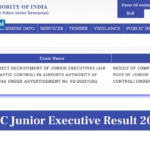In the high-frequency world of global finance, Jane Street is a name that resonates with precision trading, data-driven decisions, and market-making excellence. On the other end, in the Indian context, SEBI (Securities and Exchange Board of India) is the supreme regulatory authority, tasked with ensuring fair and transparent operations in Indian securities markets.
But what happens when a global player like Jane Street interacts with India’s regulatory landscape? What role does SEBI play in shaping or monitoring such foreign entities? And more importantly, how does this global-local dynamic impact Indian markets, traders, and investors?
This blog explores the fascinating world of Jane Street’s operations and how SEBI oversees such influential entities within India’s financial domain.
Who is Jane Street?
Global trading firm and liquidity provider, founded in 2000 and headquartered in New York. It operates across global markets with additional offices in London, Hong Kong, and Amsterdam.
Key characteristics of Jane Street:
- Specializes in ETF trading, fixed income, equities, commodities, and cryptocurrencies.
- Known for its quantitative and algorithmic trading strategies.
- Reportedly trades over $17 trillion worth of securities annually.
- Maintains a relatively low profile despite its size and influence.
- Operates largely as a proprietary trading firm, using its own capital instead of clients’ funds.
Jane Street is widely recognized for its work in market-making, providing liquidity across exchanges, and arbitraging price discrepancies between financial instruments across geographies.
What is SEBI?
SEBI (Securities and Exchange Board of India) is the regulatory authority governing India’s capital and securities markets. Established in 1988 and given statutory powers in 1992, SEBI’s primary function is to protect investor interests, promote development, and regulate the securities market in India.
Key functions of SEBI:
- Regulating stock exchanges, brokers, sub-brokers, portfolio managers, etc.
- Prohibiting insider trading and fraudulent practices.
- Overseeing foreign investment through instruments like FPI (Foreign Portfolio Investment).
- Monitoring market integrity, transparency, and liquidity.
- Setting norms for algorithmic trading, mutual funds, and derivatives.
In short, SEBI acts as India’s financial watchdog, especially when foreign entities like Jane Street enter or interact with Indian markets.
Relevance to India
While Jane Street is not a household name in India like Zerodha or HDFC Securities, its global influence does trickle into Indian markets in various indirect ways.
Here’s how Jane Street intersects with the Indian ecosystem:
1. ETF and Arbitrage Trading
India’s ETF market is growing steadily, and Jane Street, being a global ETF trading powerhouse, has a strong interest in global ETF price discrepancies. The firm may engage in cross-market ETF arbitrage involving Indian ETFs (like Nifty BeES or Bharat Bond ETFs) listed abroad or correlated indices.
2. Currency and Derivatives Trading
India’s currency derivatives market is tightly regulated, but Jane Street’s global operations in FX derivatives could touch Indian assets, especially through international exchanges like Singapore Exchange (SGX) where Indian-linked derivatives (like SGX Nifty) are traded.
3. Technology & Algo Trading
It is known for its high-frequency and algorithmic trading, areas in which SEBI has laid down detailed regulations in India. Indian exchanges like NSE and BSE have introduced co-location facilities for high-speed trading — a space where firms like Jane Street would naturally be interested.
4. Foreign Portfolio Investment (FPI)
While Jane Street primarily trades its own capital, if it seeks exposure to Indian equities, debt, or derivatives, it would have to register as an FPI under SEBI regulations — or partner with FPIs already operating in India.
SEBI’s Role in Monitoring Global Firms
SEBI plays a critical role in regulating foreign entities that interact with the Indian markets. Here’s how:
1. FPI Regulations
All foreign entities investing in Indian markets need to be registered as FPIs, and must comply with KYC, disclosure, and compliance norms.
If Jane Street were to invest directly in Indian listed stocks or derivatives, it would either:
- Register as an FPI Category I or II, or
- Trade through existing FPI structures.
2. Algo Trading Regulations
SEBI has issued strict guidelines for algorithmic and high-frequency trading. These include:
- Approval of algorithms by exchanges.
- Mandatory audit trails.
- Restrictions on order-to-trade ratios.
- Co-location guidelines.
If Jane Street engages in any form of HFT or algo trading in India, even indirectly, it would have to adhere to SEBI’s stringent requirements.
3. Surveillance & Market Integrity
SEBI works with exchanges to monitor unusual trading patterns, including those from foreign participants. With technologies like SMARTs (Securities Market Advanced Real Time Surveillance), SEBI identifies and flags potential manipulation — including from global traders.
Challenges for SEBI in Regulating Global Players
As global trading becomes faster and more complex, SEBI faces certain challenges:
1. Opaque Trading Activities
Firms like Jane Street operate behind closed doors, often not disclosing much about their strategies. Monitoring their activities across borders is challenging.
2. Cross-Border Jurisdiction
Jane Street operates globally. If they affect Indian markets through trades done in Singapore, New York, or London, SEBI’s jurisdiction is limited.
3. Regulating New Asset Classes
Jane Street is also active in crypto trading, which is still in a grey area in India. SEBI’s role in regulating crypto is still evolving, and global firms’ entry into this space poses new regulatory concerns.
Global Influence: What India Can Learn from Jane Street
Despite the regulatory caution, India can benefit from Jane Street’s operational excellence.
- Market Liquidity: Firms like Jane Street improve liquidity, reduce spreads, and stabilize markets.
- Technology Adoption: Their algorithmic trading models can inspire Indian players to modernize.
- ETF Growth: Jane Street’s role in global ETF development can guide Indian AMCs and regulators to improve local ETF ecosystems.
However, these benefits must be balanced with robust risk controls and transparency standards.
Recent Developments
As of 2025, there’s no confirmed public announcement of Jane Street’s direct operations in Indian exchanges, but reports suggest that the firm has shown interest in Indian derivatives and fixed-income segments through offshore investments.
Also, SEBI is continuously tightening norms around algo trading, market access, and foreign investments — a sign that the regulator is preparing for greater global engagement.
Conclusion
Jane Street and SEBI may operate in different hemispheres of the financial world — one as a private market-making titan, the other as a regulatory gatekeeper — but their interaction represents the future of globalized finance.
As Indian markets grow and attract more foreign interest, SEBI’s role in maintaining a fine balance between openness and oversight will become even more vital. Whether Jane Street enters India directly or continues to operate from the sidelines, its influence will be felt.
For Indian investors, market participants, and policymakers, understanding how global trading firms operate — and how SEBI keeps them in check — is key to navigating the modern financial ecosystem.
FAQs
Q1. Is Jane Street active in Indian stock markets?
Not directly in the retail segment, but it may be active via offshore derivative instruments or ETF arbitrage strategies.
Q2. Does SEBI regulate Jane Street?
If Jane Street registers as an FPI or participates in Indian exchanges, it must comply with SEBI regulations.
Q3. What is Jane Street known for?
It’s a leading global trading firm known for ETF market-making, high-frequency trading, and quantitative strategies.
Q4. How does SEBI regulate foreign traders?
Through FPI registration, KYC norms, surveillance systems, and algorithmic trading guidelines.
Q5. Can Jane Street enter Indian crypto markets?
India’s crypto regulations are unclear, but SEBI may oversee crypto-related securities once formal guidelines are implemented.










